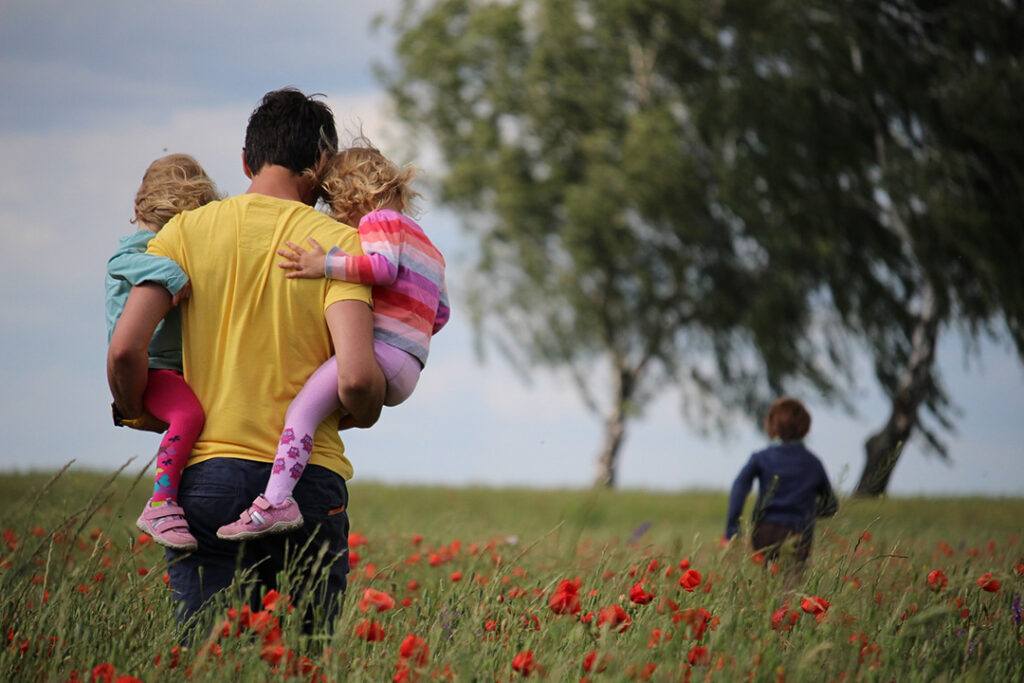The debate over religious education and freedom of religion in early childhood care
The debate over religious education and freedom of religion in early childhood care
In Finland, religious education in early childhood care has raised a debate on freedom of religion. Does religion belong in kindergarten and on what bases?
The crisis of religious education in early childhood care
Religious education in early childhood care has become a matter of controversy in many European countries. This is a consequence of changes in the school system, where the debate over religious education has existed for even longer.[1] One of the recent examples of the debate over religion in early childhood care is the case of Sweden, where a private kindergarten was closed by the police because the children were at “risk of radicalisation.”[2] The kindergarten was profiled for Muslim children and, according to the police, its values and operations were not inclusive in terms of ethnicity, gender, and language.[3]
In Finland, similar cases have not been reported,[4] but religion in general and Christianity in particular have heated up emotions recently. The latest debate concerns a Christian Easter play shown in early childhood care and the exclusion of a non-religious child from that event. In this article, we will delve into this topic and analyse why it became so controversial.
Easter play: opportunity for religious education or risk of conversion?
In October and November 2022, many Finnish newspapers reported about the case where one kindergarten had to pay a compensation of €1,500 to the family of a non-religious child.[5] [6] [7] The compensation fee was prescribed by the Non-Discrimination Ombudsman of Finland, who evaluated that the kindergarten had operated in a “discriminatory manner” when it did not organise a non-religious activity alongside a religious Easter play held by the local parish.[8]
Families of the kindergarten group were told about the Easter play beforehand and the non-religious child was offered the possibility to either stay home or spend the day with another kindergarten group.[9] The Non-Discrimination Ombudsman of Finland denounced that the problem was that no other specifically “non-religious program” was organised by the kindergarten during the “religious event” that “lacked the approach of general education.”[10] In its statement, the Non-Discrimination Ombudsman affirmed that secular childhood education can include cooperation with the Church for cultural reasons, but a “clearly religious program should be avoided.”[11]
The debate over ”clearly religious program”
The judgment of the Non-Discrimination Ombudsman sparked a debate as many professionals of religious education and representatives of the Church took a stance on the case in the media. For instance, over 20 professionals of religious education from several universities signed a public statement where they criticised the Non-Discrimination Ombudsman’s definition of the Easter play as ”clearly religious.”[12] According to the professionals, religious education can and should be part of the general education in early childhood care in Finland and it is dangerous if, for example, citing a Bible in the Easter play is condemned as a ”clearly religious,” or even further, as a ”practice of religion.”
In early childhood care in Finland, an alternative non-religious program must be organised only during activities that include the practice of religion. The Easter play did not include praying or other spiritual activities. Therefore, the professionals viewed the judgment of the Non-Discrimination Ombudsman as exaggerated and even fallacious.[13] From the Church’s point of view, Jukka Keskitalo, Bishop of Oulu Diocese, commented on media that the decision of the Non-Discrimination Ombudsman narrows positive freedom of religion.[14] According to the bishop, multiculturalism is not promoted through decisions that exclude encountering religions from general education.
Religious education in early childhood care: positive or negative freedom of religion?
The debate above shows that encountering religions in early childhood care is in transition in Finland. Religious education in public childhood care must be redefined in the secularising country, where church membership is not that straightforward anymore. However, when pondering the limits of the content of religious education, it is not advantageous if only the norm of negative freedom of religion begins to dominate. There is a risk that “religious content and knowledge are perceived as difficult and unbearable,” as Niko Huttunen, a docent from the University of Helsinki describes it.[15]
Thus, when promoting both positive and negative freedom of religion, religion, and more specifically, religions, should be approached with common rules.[16] These rules cannot be based on individual experiences of what counts as religious but rather, they should be legislated from above.[17] The authorities, on their part, should consider the value of religious knowledge when defining the boundaries of the content of religious education. Without rules, there is a risk of radicalisation in the name of positive freedom of religion, as shown above in the case of Sweden.[18] To be multicultural and inclusive, early childhood care must critically approach every religion.[19]
Our team of analysts conducts research on topics relating to religion and society. Find out their relationships on the EARS Dashboard.
Sources
[1] see Amati, G. & Clerx, A. & Scott-Cracknell, M. (2021). Education and Religion in Europe: A dossier by EARS on the role of religion in education in 17 European countries. Amsterdam: European Academy of Religion and Society. Available at: https://europeanacademyofreligionandsociety.com/wp-content/uploads/2021/06/EARS-dossier-Education-and-Religion-in-Europe.pdf)
[2] Ruotsissa alle 5-vuotiaat vaarassa radikalisoitua – päiväkoti suljetaan
[3] Ibid.
[4] Ruotsissa suljettiin päiväkoti, koska lapset olivat vaarassa radikalisoitua – tämä on tilanne Suomessa
[5] Päiväkodin pääsiäispolulla esitettiin katkelmia Raamatusta – Uskonnottomalle perheelle 1 500 euron korvaus
[6] Päiväkodin pääsiäispolun tapaus kuumentaa tunteita – Oulun piispa Keskitalo arvostelee ankarasti yhdenvertaisuusvaltuutettua: ”Viranomainen lähti edistämään uskonnottomuutta”
[7] Yhdenvertaisuusvaltuutetun toimisto vastaa: Enkelien viesti ylitti uskonnonharjoituksen rajan päiväkodin pääsiäispolulla
[8] Päiväkodin pääsiäispolulla esitettiin katkelmia Raamatusta – Uskonnottomalle perheelle 1 500 euron korvaus
[9] Ibid.
[10] Päiväkodin pääsiäispolun tapaus kuumentaa tunteita – Oulun piispa Keskitalo arvostelee ankarasti yhdenvertaisuusvaltuutettua: ”Viranomainen lähti edistämään uskonnottomuutta”
[11] Ibid.
[12] Saila Poulter ja Silja Lamminmäki-Vartia: Julkinen kannanotto yhdenvertaisuusvaltuutetun päätökseen ja siitä käytyyn mediakeskusteluun
[13] Ibid.
[14] Päiväkodin pääsiäispolun tapaus kuumentaa tunteita – Oulun piispa Keskitalo arvostelee ankarasti yhdenvertaisuusvaltuutettua: ”Viranomainen lähti edistämään uskonnottomuutta”
[15] Dosentti väittää: Suomeen pyritään yhdenvertaisuuden varjolla luomaan uusi uskonnoton normaali
[16] Ibid.
[17] Ibid.
[18] Ruotsissa alle 5-vuotiaat vaarassa radikalisoitua – päiväkoti suljetaan
[19] Päiväkodin pääsiäispolun tapaus kuumentaa tunteita – Oulun piispa Keskitalo arvostelee ankarasti yhdenvertaisuusvaltuutettua: ”Viranomainen lähti edistämään uskonnottomuutta”






